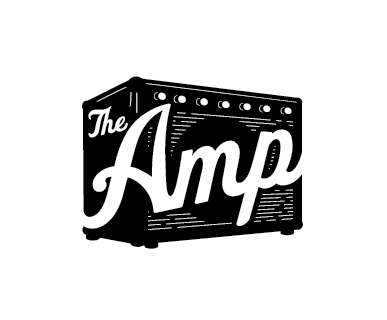Review- Midland: Barely Blue
After years of hard work, sacrifice, and iteration; three amigos living in the Hill Country west of Austin, Texas in 2016 made a strategic, hard-fought entry into the arena of country music with a collection of recordings titled On The Rocks. The band, Midland, went on to earn commercial success through the irresistible hits of that record (e.g., “Burn Out,” “Drinking Problem”) whilst touring relentlessly with credible deep cuts and covers to back them up. Following up their debut with subsequent releases of the LP’s Let it Roll in 2019 and The Last Resort: Greetings From in 2021, Midland has made a name for itself as being a band that carries the flag forward for traditional country in a distinctly modern, soulful delivery. The collection of references and influences to artists like Gary Stewart, Keith Whitley, the Eagles, and countless more laced throughout the music alludes to the band’s namesake, which comes from a Dwight Yoakam song.
By the sound and success of the band’s first three LP’s, the proud and devoted fans of Midland know well what to expect by now: An infectious country cocktail of clever songwriting, danceable grooves, and jubilant saloon energy expressed through cranked-up telecaster riffs, silky steel parts, punchy drums, and glittering vocal performances all shoved through Dann Huff’s immaculate production. For the band’s fourth LP, Barely Blue, Midland offers up a completely new recipe as they paint an entirely different corner of their world for the listener to live in.
Photo by Harper Smith
Barely Blue presents the listener with a chance to slow-dance, hold up their lighters, and rest their head on the shoulders of tunes that present new ideas to Midland’s sound. It is an expansion of Midland’s sonic world that takes a step back from tempo and grandiosity and leans into storytelling and a softer articulation. Put plainly: It doesn’t sound like the first three albums. This record features production led by national treasure Dave Cobb, and is the band’s shortest LP with eight songs. Seven of the eight songs name the band’s own Jess Carson as principal songwriter. These changes reflect an incremental shift towards a new approach for Midland’s work. Whereas another heavy-hitting, boisterous twelve-song collection of spotless honky-tonk redundancy from the same team would certainly keep the party going for the band; Midland chose a different and more artistic direction by making a project that adds contrast to their catalog while giving fans a chance to enjoy them in a new mood.
This album has a lot less tempo to it (yes, I counted). The first three Midland albums (On the Rocks, Let it Roll, The Last Resort: Greetings From) have a combined average tempo of 111 bpm. Barely Blue comes to a rounded 96, which is one of the first audible mood shifts that Midland die-hards will notice. No song on this album reflects this choice better than “Lone Star State of Mind,” where the soft backbeat and spacious ballad arrangement takes listeners to a steamy hill-country amphitheater where the audience holds up their lighters in unison. Midland already has a great song about Texas. But “Lone Star State of Mind” is not about what its name suggests. It’s a song about the struggle of growing up, moving on and looking back at previous chapters of life with nostalgia and regret. Midland is no stranger to writing about loneliness or sorrow, but has never musically expressed these feelings so squarely with tempo and space. This song is emblematic of what Barely Blue brings to the table as it personifies melancholy in a way that is less boisterous or tongue in cheek than the album’s predecessors.
Midland parlays new instrumental flavors along with increasingly vulnerable themes and subject matter to embody a new sound in Barely Blue. Take the case of “Better Than A Memory,” where a descending motif from a nylon-string guitar leads the listener into a quiet bedroom for the song’s opening scene. An organ serves as the sonic and metaphorical bed where a lover pleads devotion in the face of their partner’s past. Both the nylon string and the organ have never made up-front appearances on a Midland recording before. Yet, Midland has never been so exposed to write about a relationship’s imperfections beyond Rock N’ Roll tropes of breakups, living the bulk of life on the road, or good ol’ cheating. It has a theme of “this isn’t perfect, but I am still here” - the complications of life - along with instrumental dressings that draw the whole album closer to a legacy of soul music and to a place where we have never heard Midland before. “Halfway to Heaven” shares this quality, where a celebration of the ups and downs of a committed relationship harkens to 60’s motown performances like the Beatles or The Jackson 5. The telecaster makes an appearance, but much more in the style of George Harrison than Brent Mason. Both of these songs reflect a new side of Midland that nobody has heard until now. In this way, both the perspective of the songwriting as well as the instrumental performances work together to make this a unique collection of recordings for the band.
Though some of these aspects can reflect a dramatic shift, Barely Blue is still a Midland record through and through. “Lucky Sometimes” is a charming feel-good anthem about being optimistic and, you know... Gettin’ lucky. “Old Fashion Feeling” is a classic Midland drinking song that nails down the melancholic soul of the album. “Vegas” is a dry and dusty tale that puts a clever spin on one of the epicenters of the American West. Though Dave Cobb’s production feels less polished than the band’s previous work, it fits the tone of the project appropriately. It helps make the album feel more like a velvet painting of a sparse desert landscape. Cobb’s production also creatively reimagines the fundamental element of Midland’s sound: The vocals. I would have loved to hear Cameron Duddy or Jess Carson sing lead on at least one song, as they have done so brilliantly before. But their voices are omnipresent in this album through the huge, hazy, cloudy harmonies that lay over each arrangement like a soft duvet cover. Their sonic separation from Mark Wystrach is immense, which adds to the expansion of Midland’s sound - and the feeling of loneliness - that takes place all over the record.
Midland, in its periodo azul, has made its most thematic record yet about the beauty in the resilience it takes to grow up. There are few, if no other moments in the band’s discography that encapsulate emotion like Barely Blue. It sounds less like a square-body pickup rolling coal onto a two-lane highway and feels more like catching your best friend hunched over an empty bar at 4pm to escape the heat while digesting some sobering and life-altering news.
Find out more about Midland at the links below:







